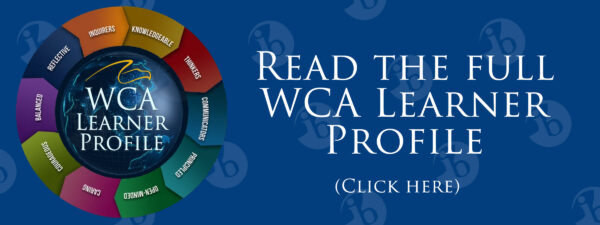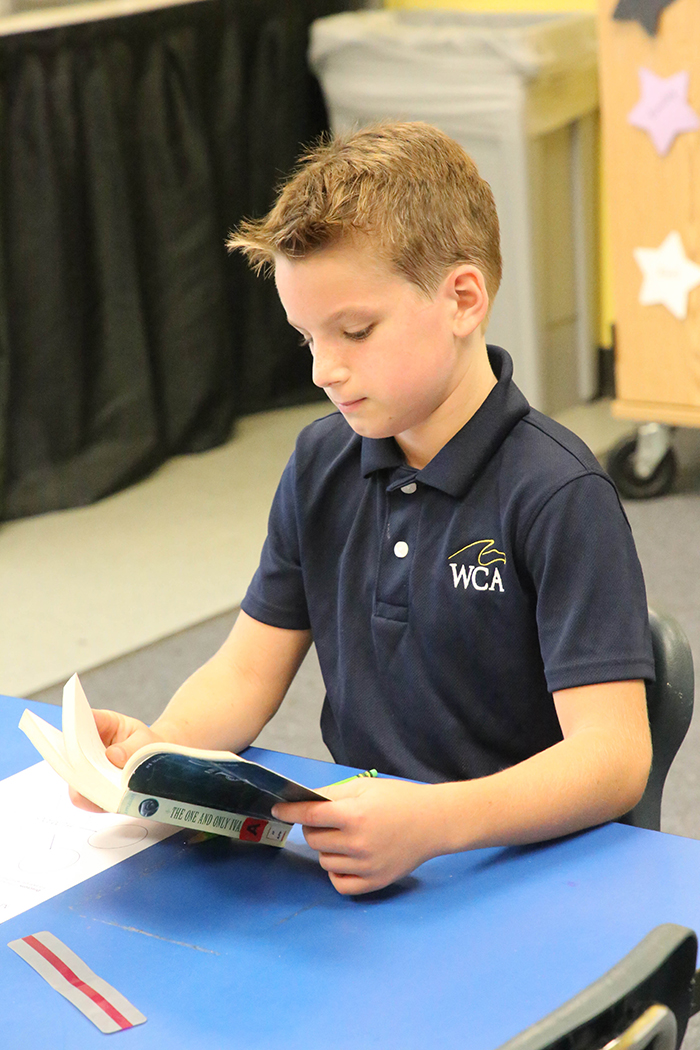



Student Program FREE "12 Things to Ask" Guide Contact an Admissions Representative Admissions Overview START HERE DIRECTIONS Military Families at WCA Discounts and Scholarships Educational costs & Fees

Approaches to Learning The DP (11th, 12th) Academics Overview




LET's Go EAGLES!!
Spiritual and Student Life Overview


IB F.A.Q.
This page provides answers to the most commonly asked questions we receive regarding WCA's International Baccalaureate Program. For further questions, please contact our admissions team at admissions@williamsburgchristian.org

Following the analysis of the May 2019 parent survey, vertical alignment of our K-12 curriculum emerged as one of our most pressing priorities. Faculty, leadership, and Board began its due diligence, which included the research of Christian IB schools across the United States, internal discussions, and debate---followed by more discussion, debate, and analysis. Late in the fall of 2019, the Board approved the school to move forward with the International Baccalaureate certification process. WCA is now an IB Continuum School, meaning it offers IB from kindergarten to twelve grade through the PYP, MYP, and DP programs. We are the only Christian IB Continuum School on the East Coast.
Faculty members undergo extensive training and professional development needed to bring our entire curriculum into alignment with IB’s common language and goals. Course offerings differ from the traditional somewhat, although specifics are determined through the training and preparation process. But most importantly, WCA's curriculum is aligned and continuous all the way from arrival at kindergarten through graduation, culminating in a rigorous and highly-regarded diploma program.
The ultimate goal of an IB education, described in the Learner Profile, is very much in line with the characteristics WCA has always worked to instill in our graduates. Though we value and pursue those traits with different motivation - ultimately, to honor God in all things. The IB Learner profile and WCA challenge students to pursue excellence, responsibility, and honor in all areas of their lives as set forth in Philippians 1:9-11 and Hebrews 13:18.
Yes. Colleges and universities grant credit for IB courses. In the Diploma Programme, students take end of course exams, which are given either at the Standard Level (SL), or High Level (HL). Some schools offer credit for high scores on High Level (HL) exams, but not Standard Level (SL) exams; others offer credit for high scores on both HL and SL.
At certain schools, the IB Curriculum is so highly regarded that a final score that exceeds a certain threshold entitles the student to bypass their entire first year of college in credit hours!
The Primary Years Program (PYP) does not affect subject areas, only the way in which they are taught. The transdisciplinary nature of the classwork means classwork goes across subject areas.
The Middle Years Program (MYP) provides students in grades 6-10 an inquiry-based learning framework. Because MYP is not a curriculum, teacher training focuses on unified Approaches to Teaching (ATTs) and Approaches to Learning (ATLs) with the goal of skill-acquisition that facilitates content-acquisition. Eight core subjects are covered throughout the five years of the MYP, with the Personal Project as capstone in 10th grade.
Finally, the Diploma Program (DP) contains coursework almost identical to typical AP style courses, but are titled somewhat differently: Studies in language and literature, Language acquisition, Individuals and Societies, Sciences, Mathematics, and the Arts. Obviously Biblical Studies courses are incorporated into the course load, and all classes continue to be taught through a Biblical lens. The DP courses are broken into two levels of difficulty: Standard Level (SL), equivalent to standard Honors courses, and High Level (HL), which would be on par (if not more so) with Advanced Placement (AP) courses.
Institutions of higher education are seeking students who embody the IB Learner Profile. Due to its international reputation, colleges and universities recognize that students matriculating from IB programs as lifelong learners adapt and thrive in new environments. American colleges and universities love good grades, but what they love even more is to see that you’ve pushed yourself to get them. Universities appreciate the IB’s rigor and they know it takes hard work and dedication to perform well, particularly in Higher Level (HL) subjects. Statistics show that acceptance rates for IB students is often double the standard acceptance rate at elite colleges like Cornell (47% for IB students/14.1% overall), Johns Hopkins (46% for IB students/11.4% overall) and Duke (36.2% for IB students/9% overall).
Yes, Math and Sciences are two core elements of the Diploma Program, so a great deal of emphasis is placed on them. Moreover, course instruction in the DP dives deeper into conceptual applications of math and science, and will require students not only to know the subject matter, but be able to manipulate the constructs of each nimbly enough to speak and write in depth through projects, essays on broader implications and applications, and critically think about the 'bigger picture' of math and science course material.
One of the hallmarks of the High Level (HL) courses in the Diploma Program is its substantial rigor. Colleges view the IB program so highly in admissions because pushes students far more in terms of depth of knowledge than a traditional school curriculum. That being said, do you have to be gifted to succeed in the Diploma Program? One blog writer expressed it best when they said that the DP is more for the go-getter than the gifted. Hard work, attentiveness, attention to detail and organizational skills count more than pure acadmic giftedness in the DP. Also, students may choose Standard Level (SL) courses vice High Level (HL) courses if they and their parents feel that the full canopy of the HL Diploma Program may be too much for them to handle.
Again, the DP is geared towards the go-getter. Hard work, attentiveness, attention to detail and organizational skills come into play the most in the DP, so every student, if they are willing to put in the work, can participate in the IB. Students that need learning accommodations are fully welcome to embark upon the goal of completing the Diploma Program and are supported every step of the way by our Learning Support Services staff members.


